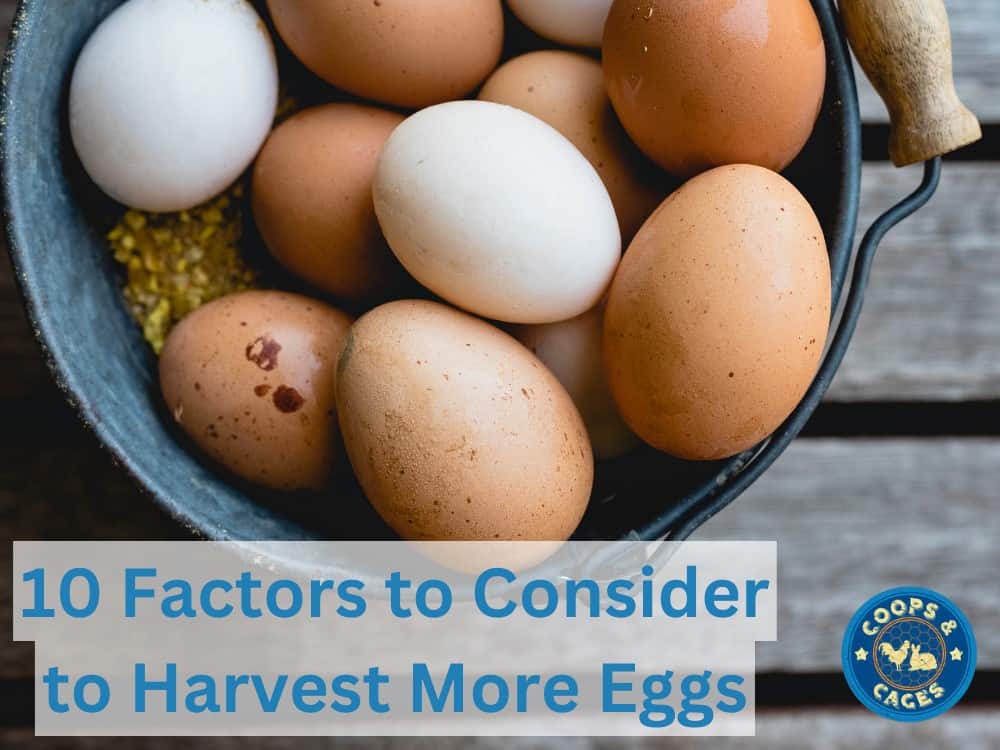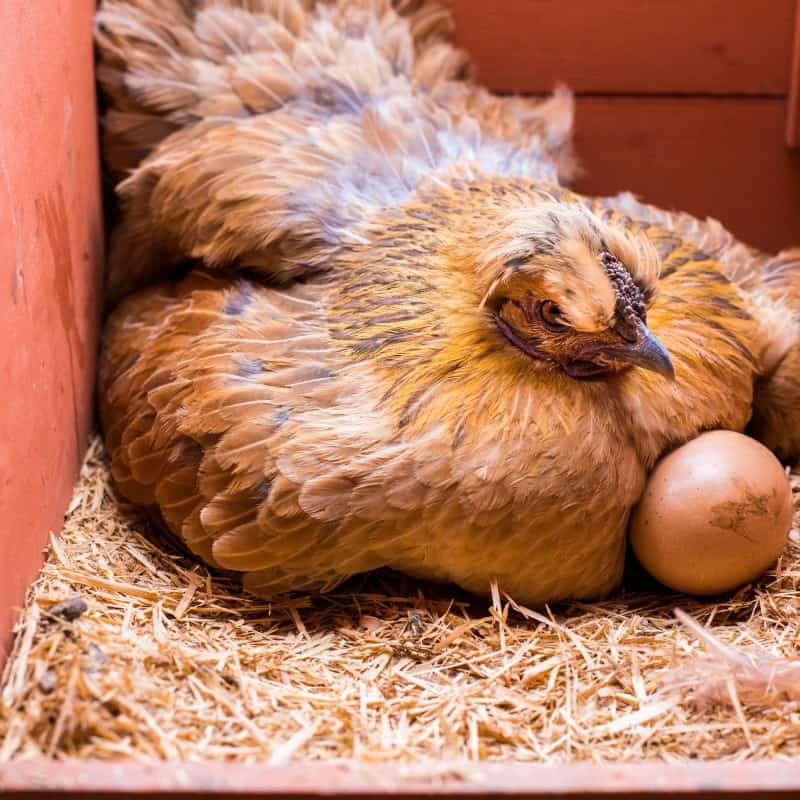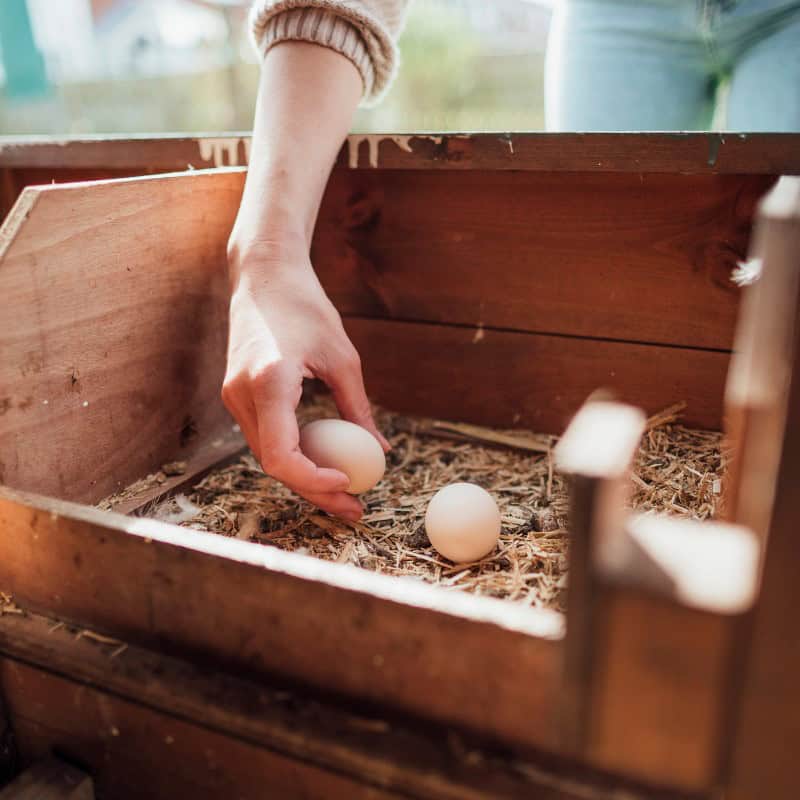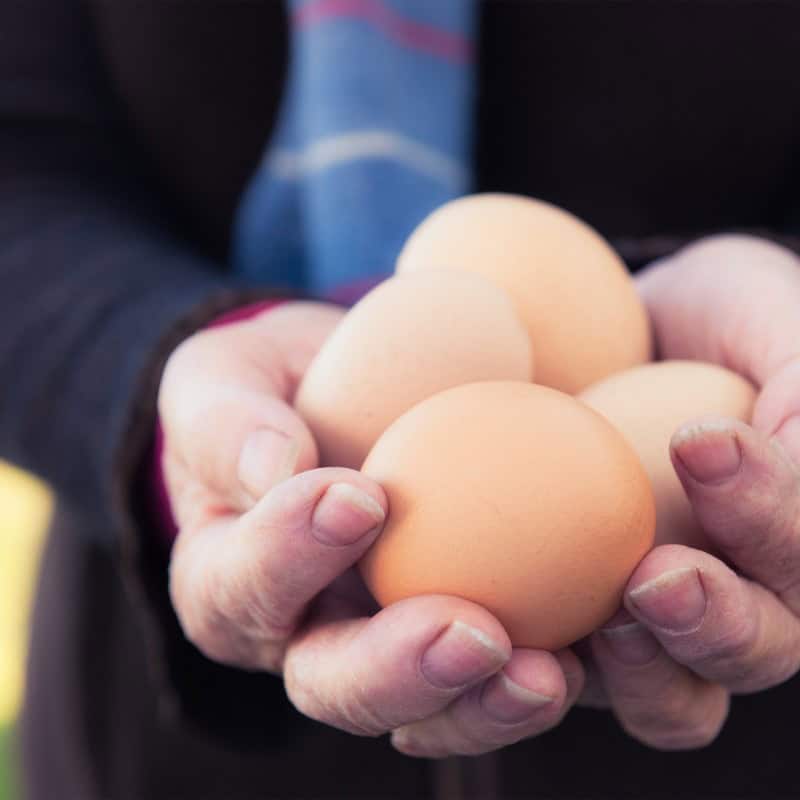Chickens
10 Factors to Consider to Harvest More Eggs
One of the greatest pleasures of tending to backyard chickens is the anticipation and joy of collecting fresh eggs from the coop or nest boxes. The disappointment of finding none can be disheartening, potentially posing problems for both us and our feathered friends.
Whether you’re raising chickens for personal enjoyment or profit, a lack of egg production can disrupt your plans. Various factors, including physical, environmental, behavioural, and emotional triggers, can influence egg production.
In this guide, we will look into why chickens might not be laying eggs and offer solutions to boost egg productivity.
1. Insufficient Lighting Conditions
Chicken egg production relies on light to stimulate their pituitary glands. For consistent laying, hens typically require exposure to 14 to 16 hours of light daily.
However, as daylight diminishes in autumn and winter, egg production can decrease or even stop entirely.
Installing extra lighting in the coop can help stimulate egg laying, especially during periods of inadequate daylight.
2. Moulting
When your hen starts to shed feathers, it’s likely that she’s undergoing moulting, a natural process that occurs during autumn and winter when days shorten.
During moulting, chickens shed old feathers to make way for new ones. However, this process diverts nutrients and protein away from egg production to support feather regrowth.
Providing supplemental nutrients and protein in your hen’s diet during moulting can support healthy feather regrowth and maintain egg production levels.
3. Stress and Change
Hens can be very sensitive to stress and change to the extent that they stop laying eggs. They dislike change, which is a major cause of stress and a decline in egg production. Any of the following reasons may be why your hen is not laying eggs and is stressed out:
- Change of feed
- Change of coop layout
- Being moved to a different coop or yard
- Adding or reducing the flock size
- Being annoyed by children
- Fright from another animal or predator
- Irritation from internal parasites (worms, coccidia) or external parasites (rodents, mites, lice)
- Loud noises
- Extreme weather
4. Broodiness
When your hen becomes broody, it signals her desire to hatch and raise her eggs.
However, having a broody hen in your coop can disrupt the egg production of the entire flock. Not only does the broody hen cease laying eggs herself, but her behaviour may also influence other hens to become broody and stop laying.
It’s important to either break the broody behaviour or move the hen to hatch her eggs in a separate location to maintain egg production in the flock.
5. Parasites
When hens are sick or infested with parasites like worms, lice, or mites, their egg production can decrease or even cease entirely.
It’s crucial to observe your hen for symptoms of illness or infestation and provide clean water and appropriate medication promptly.
Additionally, maintaining a clean coop environment is essential to prevent rodents from accessing the coop, which can further stress the hens and exacerbate health issues.
6. Egg Hiding
Hens that are allowed to free range often tend to lay eggs outside the coop or in secluded spots.
With the freedom to roam, they may wander off for weeks to brood in secret and return with newly hatched chicks. To prevent this, it’s beneficial to train these hens to lay their eggs inside the coop by providing sufficient nesting boxes.
7. Egg Eating
Fresh eggs are a delight for everyone, including the hens themselves. However, if a hen discovers a broken egg in her nest box, she may develop a taste for it, leading to a concerning habit.
Once a hen starts eating broken eggs, she can become hooked on this nutritious, protein-rich snack. This habit may escalate, with the hen breaking and consuming her own eggs in the future.
8. Age
The normal egg production span of hens is usually 2 years. After that, their egg production usually declines. The solution to this is having new hens or letting them brood a new generation of chickens.
9. Predator Theft
Numerous predators, including rats, goannas, snakes, possums and other small animals, are known for stealing chicken eggs. To safeguard against this threat, it’s crucial to secure coops to prevent these predators from gaining access, especially at night when chickens are sleeping and vulnerable.
10. Nutritional Imbalance and Water Deprivation
Providing hens with the wrong feed or treats can result in nutritional imbalances.
Similarly, overcrowding in a coop can lead to hens being unable to access feeders, or not enough food, resulting in inadequate nutrition and decreased egg production.
Additionally, limited access to clean, fresh water can also impact egg production negatively. To ensure optimal egg production, it’s crucial to avoid overpopulating the coop, allowing hens to access food and water evenly alongside their flock mates.
By addressing factors such as nutrition, housing, and health, you can maximize egg production. Implementing the strategies discussed in this guide will ensure a bountiful supply of fresh eggs from your backyard flock, enriching both your table and your life.
So good luck in your poultry farming and may you find success!






